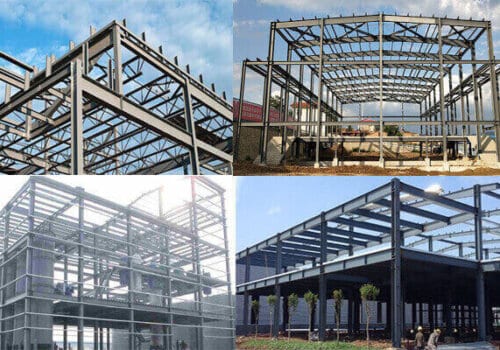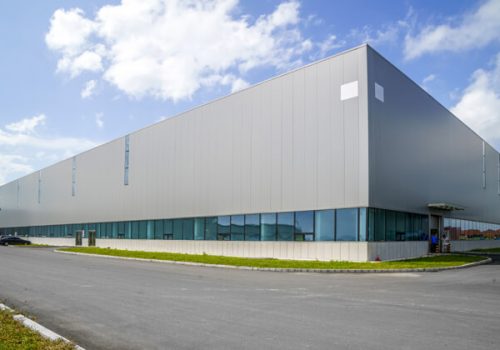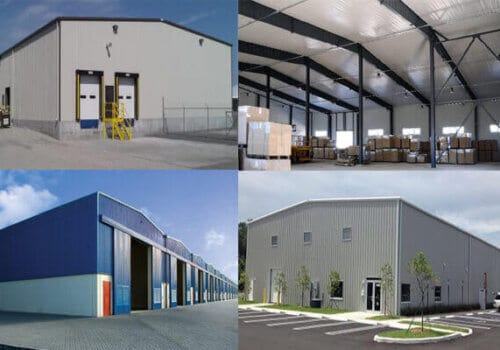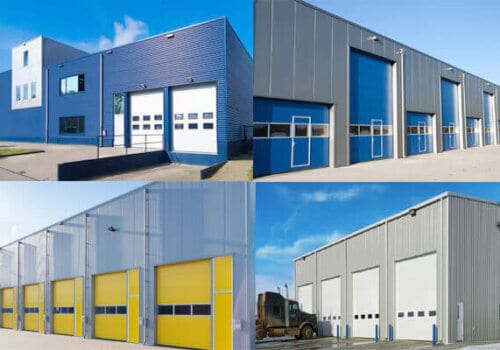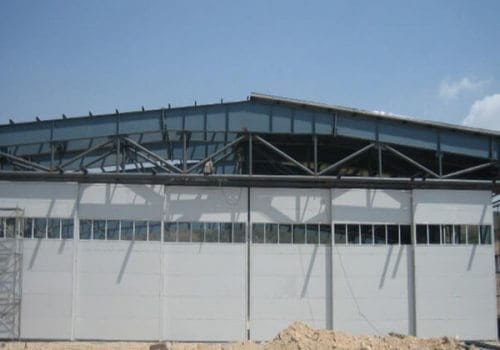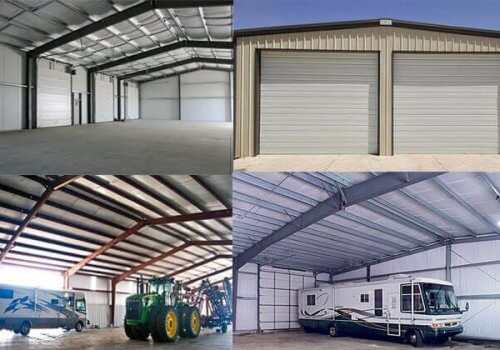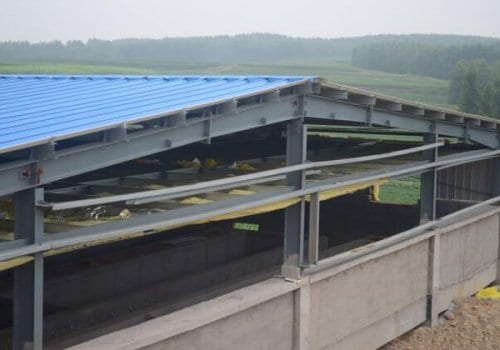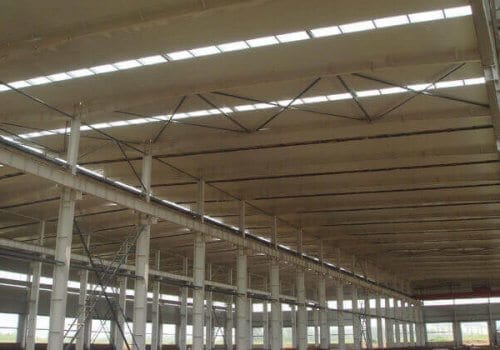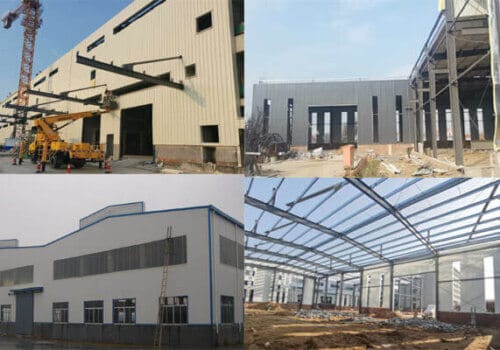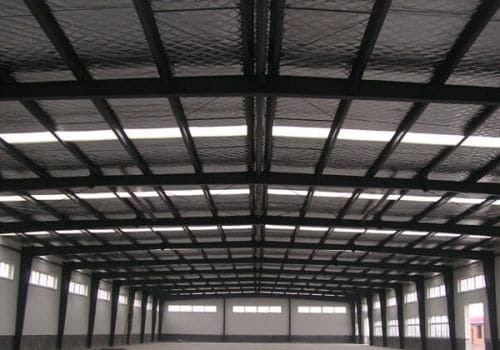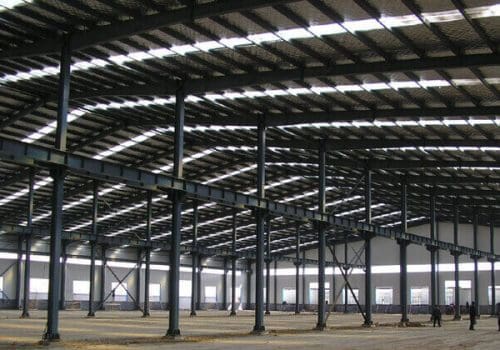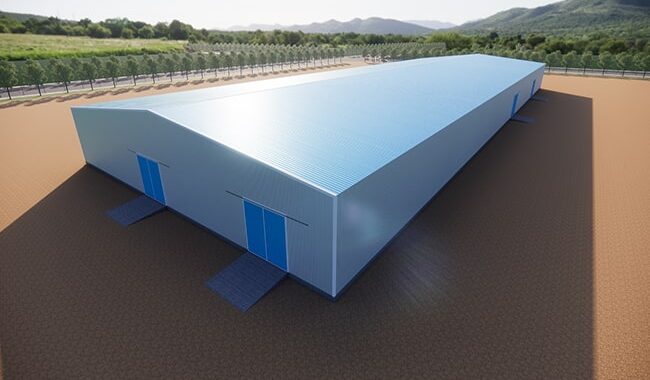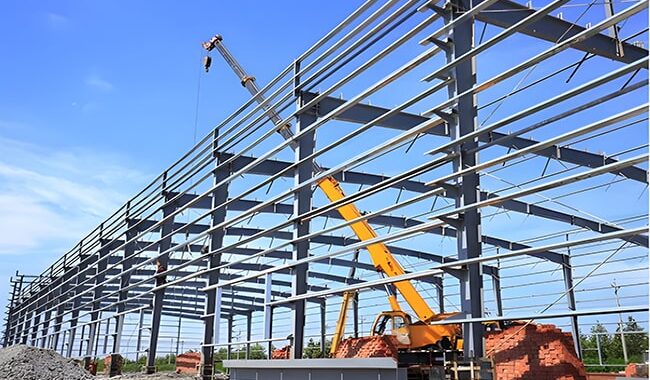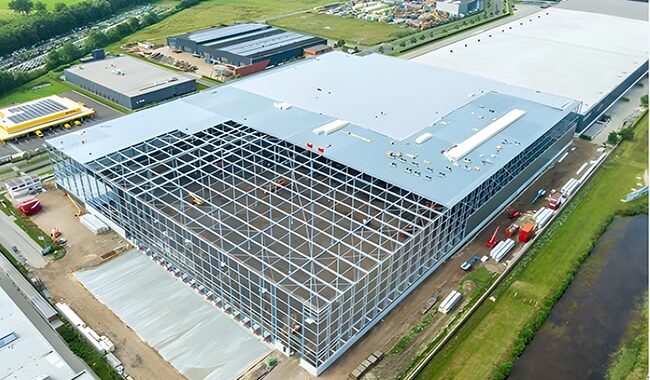Kazakhstan steel warehouse design is a case of steel structure construction in cold regions. The local snow load must be…
Thermal insulation, moisture-proof, and sound insulation processed for metal structure building.
Because of its unique structure, the designers need to pay special attention to the following points in the roof design, such as anti-seepage, ventilation, roof metal fire protection, wind pressure resistance. And specially heat insulation, moisture-proof, and sound insulation for metal structure building.
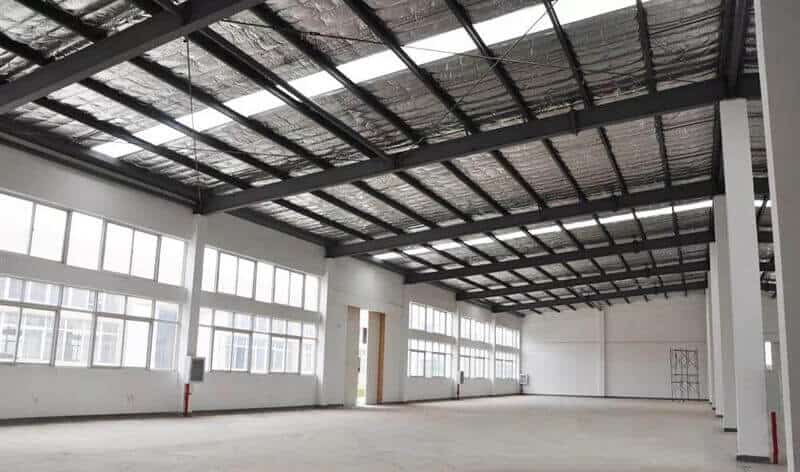
Thermal insulation for Metal Structure Buildings
There are two kinds of steel structure buildings commonly used insulation measures.
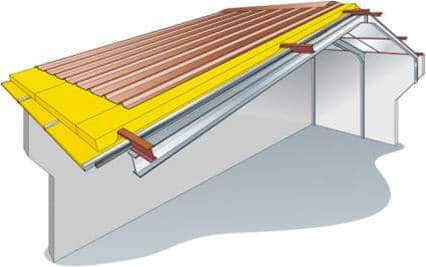
The first is to install air coolers on the roof of the factory building for thermal insulation. The other is to do thermal insulation and cooling of the whole steel structure factory building, which can isolate most of the solar radiation or conduct heat, and reduce the formation of greenhouses effect indoors. Thereby significantly reducing the temperature of the workshop and improving the environment of the steel structure workshop.
The other is to cover the roof of the steel structure factory with thermal insulation cotton. Generally, the thermal insulation cotton used on the roof is glass wool. The usual thickness is 50mm, 75mm, 100mm, and the density is 10kg/m. The installation of the thermal insulation cotton can generally reduce the indoor temperature by 5-8℃.
Moisture-proof for steel structure buildings
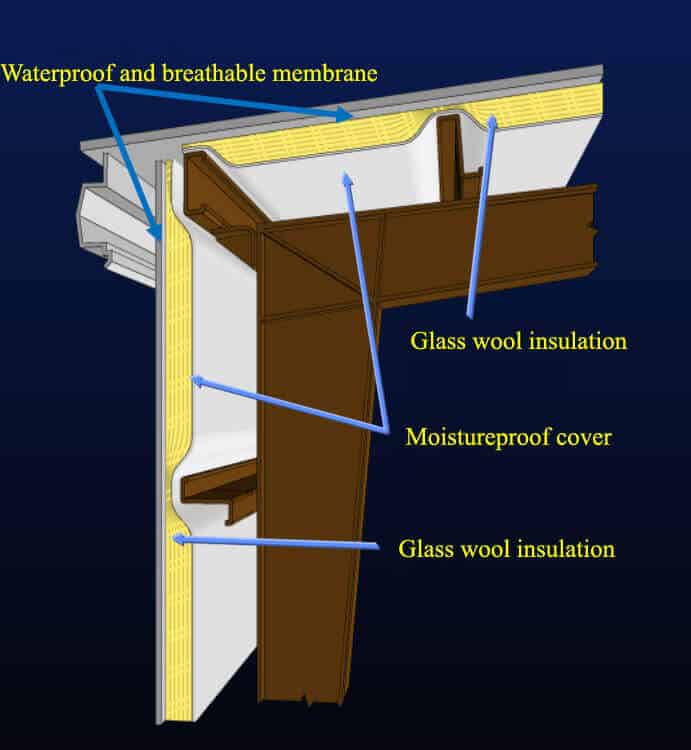
It needs to prevent condensation of water vapor in the bottom layer of the metal roof and inside of the metal roof layer, and remove the water vapor in the metal roof layer. The solution is to fill the metal roof with thermal insulation cotton, put a waterproof membrane on the metal roof bottom plate, and have ventilable nodes on the metal roof.
Sound insulation for steel structure buildings
Prevent sound from being transmitted from outdoor to indoor or from indoor to outdoor. Fill the metal roof layer with sound insulation material (usually made of insulation cotton), and the sound insulation effect expressed by the difference in sound intensity on both sides of the metal roof layer. The sound insulation effect is related to the density and thickness of the sound insulation material. It should note that sound insulation materials have different blocking effects on the sounds of different frequencies.
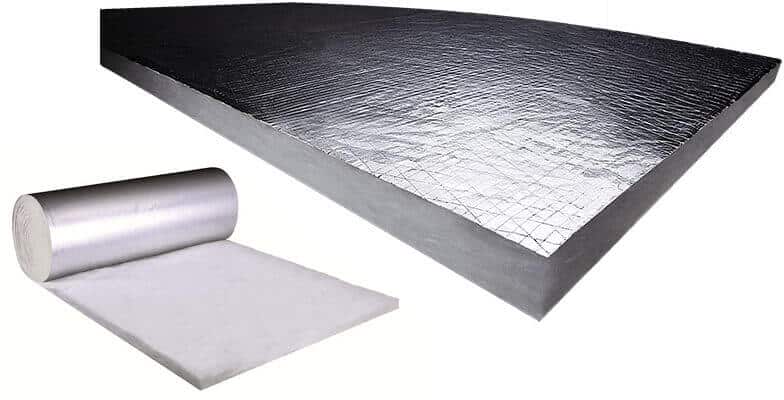
Glass wool generally used for steel structure thermal insulation, moisture-proof and sound insulation.
Glass wool for steel structure is building insulation, sound absorption, and noise reduction material with convenient transportation, quick installation, and competitive cost.
